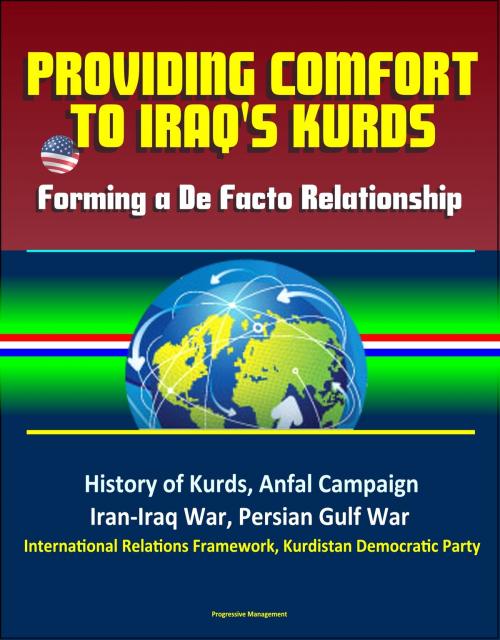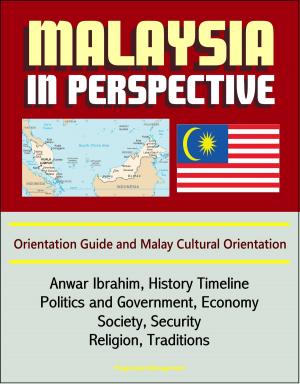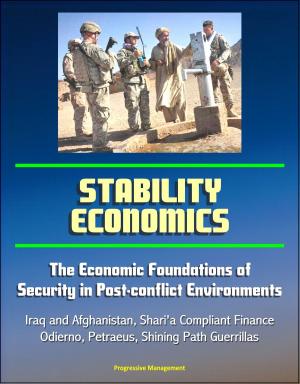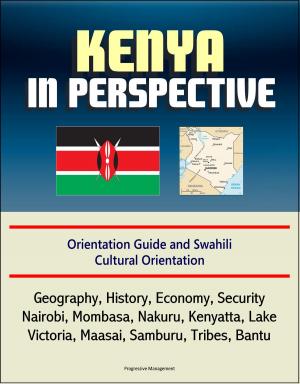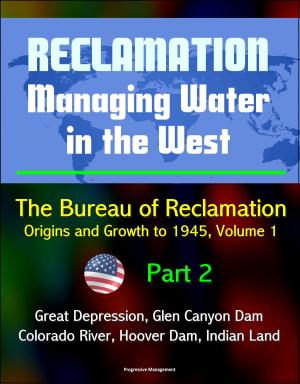Providing Comfort to Iraq's Kurds: Forming a De Facto Relationship - History of Kurds, Anfal Campaign, Iran-Iraq War, Persian Gulf War, International Relations Framework, Kurdistan Democratic Party
Nonfiction, History, Middle East, Persian Gulf War, Military| Author: | Progressive Management | ISBN: | 9781370570881 |
| Publisher: | Progressive Management | Publication: | October 11, 2016 |
| Imprint: | Smashwords Edition | Language: | English |
| Author: | Progressive Management |
| ISBN: | 9781370570881 |
| Publisher: | Progressive Management |
| Publication: | October 11, 2016 |
| Imprint: | Smashwords Edition |
| Language: | English |
This important report has been professionally converted for accurate flowing-text e-book format reproduction. This study seeks to determine how the United States has become the de facto security guarantor to Iraq's Kurds. The development of a formal relationship between the American government and Iraq's Kurdish population began as a response to a humanitarian crisis after the First Gulf War. The response mission was named Operation Provide Comfort. Though not intended to take sides, Operation Provide Comfort was a direct intervention into a conflict between the Iraqi state and Iraq's Kurds—one that provided political space for the Kurds to pursue autonomy at Baghdad's expense. Operation Provide Comfort was a shift in American policy on Iraq, made more prominent in comparison to American policy only three years earlier that declined to respond to allegations of genocide among these same Kurds by the same Iraqi state.
This study recounts a brief history of Iraq's Kurds and of American policy regarding their liberation movement, and applies the framework of three prominent international relations theories—liberal internationalism, constructivism and realism —to analyze Operation Provide Comfort as a U.S. foreign policy decision. This study determines that all three frameworks explain aspects of the mission, though the application of each theory exposes Iraq's Kurdish question as an ongoing shortcoming in U.S. foreign policy.
CHAPTER I - INTRODUCTION * A. SIGNIFICANCE OF THE RESEARCH * B. LITERATURE REVIEW * C. POTENTIAL EXPLANATIONS AND HYPOTHESES * D. RESEARCH DESIGN * E. THESIS OVERVIEW AND CHAPTER OUTLINE * CHAPTER II - BRIEF HISTORY OF IRAQI KURDS * A. KURDS OF IRAQ * B. KURDISH NATIONALIST RESISTANCE IN IRAQ * 1. The Iraqi-Kurdish War * 2. The Iran-Iraq War and the Anfal Campaign * C. CONCLUSION * CHAPTER III - REVIEW OF IRAQI KURDS IN U.S. FOREIGN POLICY * A. AMERICAN FOREIGN POLICY AND IRAQ'S KURDS BEFORE THE FIRST GULF WAR * B. AMERICAN FOREIGN POLICY AND IRAQ'S KURDS AFTER THE FIRST GULF WAR * C. CONCLUSION * CHAPTER IV - INTERNATIONAL RELATIONS (IR) FRAMEWORK ANALYSIS OF OPERATION PROVIDE COMFORT * A. POLITICAL CONTEXT OF OPERATION PROVIDE COMFORT * B. OPERATION PROVIDE COMFORT WITHIN A LIBERAL INTERNATIONALIST FRAMEWORK * C. OPERATION PROVIDE COMFORT WITHIN A CONSTRUCTIVIST FRAMEWORK * D. OPERATION PROVIDE COMFORT WITHIN A REALIST FRAMEWORK * E. CONCLUSION * CHAPTER V - POLICY IMPLICATIONS * LIST OF REFERENCES * A. BOOKS * B. ARTICLES * C. GOVERNMENT DOCUMENTS
This important report has been professionally converted for accurate flowing-text e-book format reproduction. This study seeks to determine how the United States has become the de facto security guarantor to Iraq's Kurds. The development of a formal relationship between the American government and Iraq's Kurdish population began as a response to a humanitarian crisis after the First Gulf War. The response mission was named Operation Provide Comfort. Though not intended to take sides, Operation Provide Comfort was a direct intervention into a conflict between the Iraqi state and Iraq's Kurds—one that provided political space for the Kurds to pursue autonomy at Baghdad's expense. Operation Provide Comfort was a shift in American policy on Iraq, made more prominent in comparison to American policy only three years earlier that declined to respond to allegations of genocide among these same Kurds by the same Iraqi state.
This study recounts a brief history of Iraq's Kurds and of American policy regarding their liberation movement, and applies the framework of three prominent international relations theories—liberal internationalism, constructivism and realism —to analyze Operation Provide Comfort as a U.S. foreign policy decision. This study determines that all three frameworks explain aspects of the mission, though the application of each theory exposes Iraq's Kurdish question as an ongoing shortcoming in U.S. foreign policy.
CHAPTER I - INTRODUCTION * A. SIGNIFICANCE OF THE RESEARCH * B. LITERATURE REVIEW * C. POTENTIAL EXPLANATIONS AND HYPOTHESES * D. RESEARCH DESIGN * E. THESIS OVERVIEW AND CHAPTER OUTLINE * CHAPTER II - BRIEF HISTORY OF IRAQI KURDS * A. KURDS OF IRAQ * B. KURDISH NATIONALIST RESISTANCE IN IRAQ * 1. The Iraqi-Kurdish War * 2. The Iran-Iraq War and the Anfal Campaign * C. CONCLUSION * CHAPTER III - REVIEW OF IRAQI KURDS IN U.S. FOREIGN POLICY * A. AMERICAN FOREIGN POLICY AND IRAQ'S KURDS BEFORE THE FIRST GULF WAR * B. AMERICAN FOREIGN POLICY AND IRAQ'S KURDS AFTER THE FIRST GULF WAR * C. CONCLUSION * CHAPTER IV - INTERNATIONAL RELATIONS (IR) FRAMEWORK ANALYSIS OF OPERATION PROVIDE COMFORT * A. POLITICAL CONTEXT OF OPERATION PROVIDE COMFORT * B. OPERATION PROVIDE COMFORT WITHIN A LIBERAL INTERNATIONALIST FRAMEWORK * C. OPERATION PROVIDE COMFORT WITHIN A CONSTRUCTIVIST FRAMEWORK * D. OPERATION PROVIDE COMFORT WITHIN A REALIST FRAMEWORK * E. CONCLUSION * CHAPTER V - POLICY IMPLICATIONS * LIST OF REFERENCES * A. BOOKS * B. ARTICLES * C. GOVERNMENT DOCUMENTS
